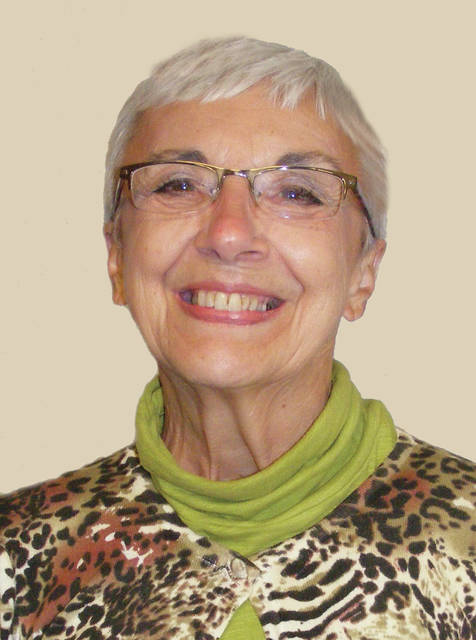
Gov. Mike DeWine recently named Athens County poet Kari Gunter-Seymour as Ohio’s Poet Laureate. Forty-four of the 50 states appoint a poet laureate, while Alaska has a state writer laureate and Idaho maintains a writer in residence. Our nation has named 23 illustrious wordsmiths as U.S. Poet Laureate, a position currently held by Joy Harjo, a member of the Muscogee Creek Nation and the first Native American to serve in that capacity. The Ohio Poet Laureate’s stated task is to enrich the lives of Ohioans by sharing and promoting poetry, offering the honoree the opportunity to foster the art of poetry while encouraging literacy and learning.
The poetic work of Kari Gunter-Seymour, a ninth-generation Appalachian, is described as “firmly and unapologetically attached to her home soil.” She says that her childhood experiences at her grandparents’ farm impact her writing yet today. “We were very close to nature; I saw something different every day on the farm. I learned that survival depended not just on the weather, but the cooperation of many people believing in acting to help their neighbors.”
The poet-laureate’s statement asserting that the arts can play a critical role in uniting citizens reveals a primary reason that throughout history artists from court jesters to Mozart to Robert Mapplethorpe have benefited from governmental support. Currently many artists and arts organizations are receiving financial assistance through federal funds provided by the CARES (Coronavirus Aid, Relief and Economic Security) Act, which will prove essential in keeping the arts alive while the pandemic continues to prevent live performances and large public gatherings from safely taking place.
Politicians realize that in addition to the aesthetic benefits provided, the arts are essential to the economic vitality of communities and crucial to the education of our children. I was pleased to read that presumptive President-Elect Joe Biden is seen by arts leaders as one who understands that the arts are a critical driver of healthy and strong local economies in cities and town across the country; Mr. Biden has received high marks from cultural leaders and arts executives for his voting record. “Everything we hoped for, he voted for,” said Robert Lynch of Americans for the Arts. The former vice-president’s deep commitment to the arts is further borne out by this quote from an interview conducted this August: “The future of who we are lies in the arts; it is the expression of our soul.”
Mr. Biden’s taste in music is said to run towards Broadway musicals, the Beatles, Bruce Springsteen, and Coldplay; he has been quoted as saying he would like to play with Irish folk group The Chieftains, demonstrating an affinity for the Irish culture that links with his own heritage. Additionally, James Joyce is said to be among Mr. Biden’s favorite writers, and his taste in poetry also leans toward the Irish.
Poetry has, in fact, had great impact on Mr. Biden’s life; as a young boy, he was a stutterer and was often bullied at school. By memorizing and reciting in front of his bedroom mirror long passages written by Emerson and Yeats, his stuttering was overcome. As a politician, the former senator has often quoted poetry, including the following excerpt used during his acceptance speech at the Democratic National Convention when he referenced a portion of Seamus Heaney’s verse adaptation of Sophocles’ play about the Trojan War, Philoctetes:
“History says, Don’t hope
On this side of the grave.
But then, once in a lifetime
The longed-for tidal wave
Of justice can rise up,
And hope and history rhyme.”
Transcending politics, governmental support for the arts benefits citizens in boundless and diverse ways; like all of the arts, poetry can provide thoughtful symmetry, comfort, and inspiration when considering life’s difficulties or celebrating life’s joys, ultimately enabling people of all political persuasions to unite around a common good — such as the appointment of a new poet laureate in Ohio.
[Editor’s Note: While Democrat Joe Biden has been named the presumptive president-elect according to many media outlets, ongoing legal issues over the legitimacy of votes in certain states remain and the Dec. 14 meeting of Electoral College electors to certify the president-elect has yet to take place.]


